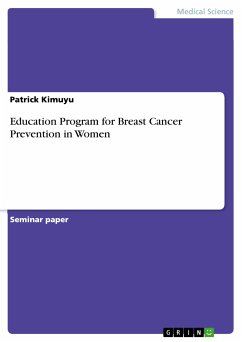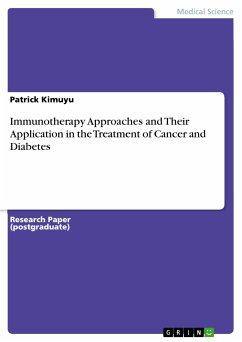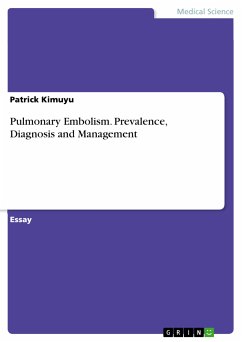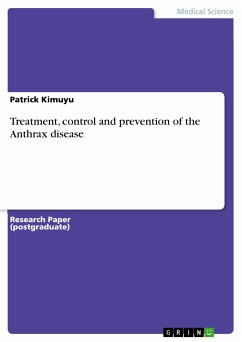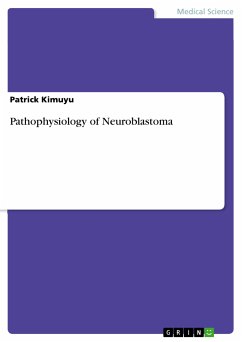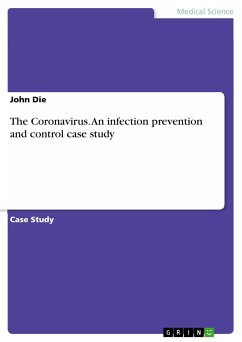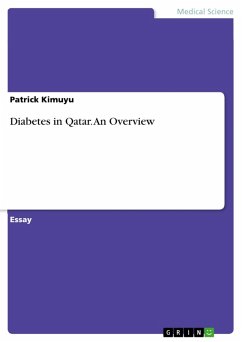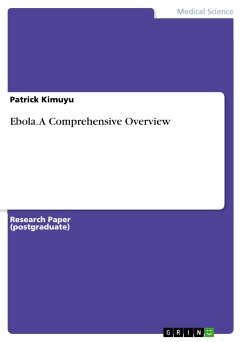Seminar paper from the year 2017 in the subject Medicine - Epidemiology, grade: 1, Egerton University, language: English, abstract: A condition that affects women throughout all communities, breast cancer is a form of malignancy that affects the cells of the breast tissue. When diagnosed, this condition can result in aggressive treatment modalities including chemotherapy and breast mastectomy. In effort to decrease the diagnosis of breast cancer in women, adequate preventative methods are needed to assist the female population in decreasing the likelihood of disease. This paper offers women and Advanced Practice Nurses an educational program grounded in review of evidence-based research and guidelines that will assist in providing female patients with screening methods to detect breast cancer and modifiable risk factors that will assist in decreasing the likelihood of disease. A form of malignancy that affects the cells of the breast, breast cancer is diagnosed in one of eight women during their lifetime. Breast cancer is a serious condition that reaches the lives of all members of the female population as up to 85% of women with newly diagnosed breast cancer do not have a family history of the condition. Women of all ages and ethnicities are being diagnosed with breast cancer with many of them unaware and uneducated concerning the prevention methods and lifestyle modifications that assist in decreasing the chance of developing the condition. Nurse practitioners play a crucial role in breast cancer prevention in women. As Advanced Practice Nurses continue to become an increased and strong presence in primary care provision for the population, they are able to provide teaching and education to women regarding their health and wellness and the prevention of breast cancer. The purpose of this paper is to provide an educational program for breast cancer prevention in women grounded in evidence-based research and guidelines concerning women's health. This educational program will assist practitioners in educating the target population of women in identifying, understanding and practicing the necessary interventions for breast cancer prevention. By utilizing this educational tool, Advanced Practices Nurses will be able to ensure successful breast cancer prevention in their female patients. Effective breast cancer prevention will be achieved by educating and encouraging women to complete important screenings such as BRCA testing and mammography, addressing modifiable risk factors such as obesity, alcohol and tobacco use and implementing interventions such as exercise and healthy eating.
Dieser Download kann aus rechtlichen Gründen nur mit Rechnungsadresse in A, B, BG, CY, CZ, D, DK, EW, E, FIN, F, GR, HR, H, IRL, I, LT, L, LR, M, NL, PL, P, R, S, SLO, SK ausgeliefert werden.

